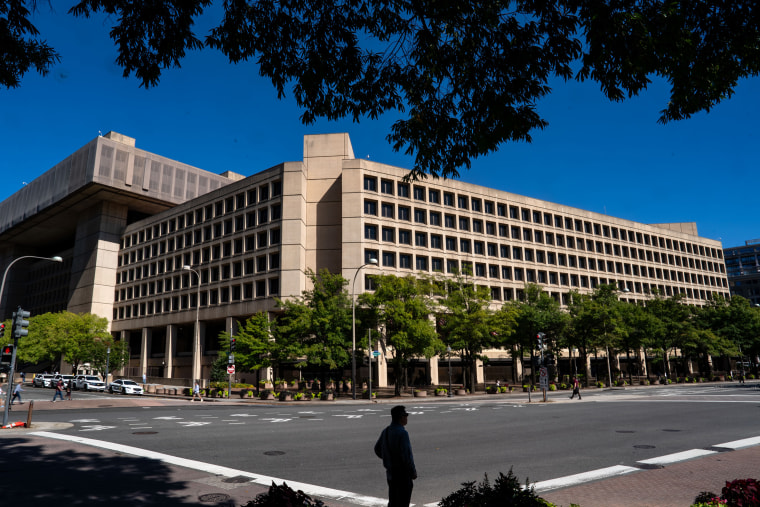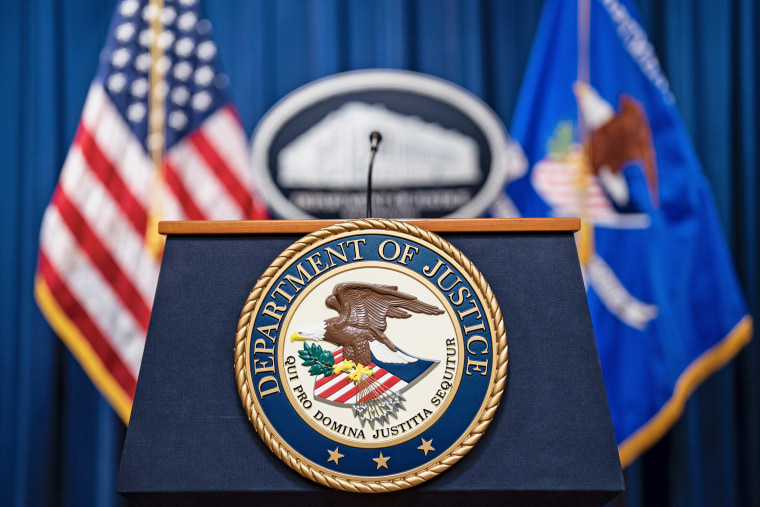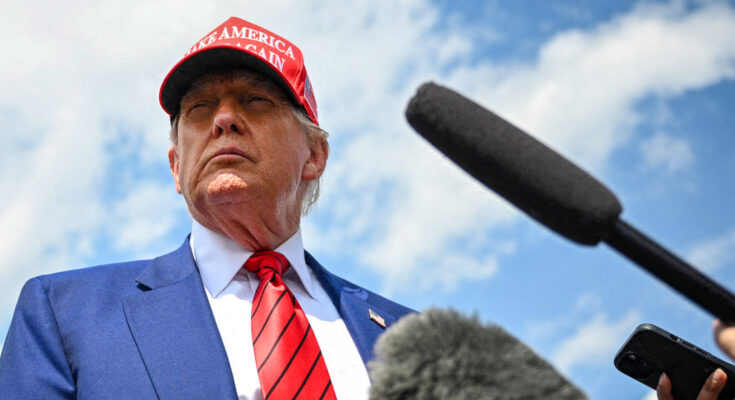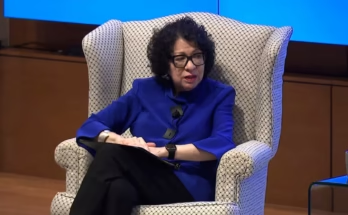CNCMNews
As the United States faces possible retaliatory attacks from Iran, a “brain drain” in top Justice Department and FBI national security and counterterrorism units could reduce their ability to prevent potential terror and cyber attacks from Tehran, according to six former senior DOJ and FBI officials.
Staff levels in the DOJ National SecurityDivision’s Law and Policy section have dropped by as much as two-thirds, two former DOJ officials said. Its counterintelligence and export control section — which tracks foreign espionage in the U.S. by Iran and other foreign rival — has lost about a third of its workforce, two former DOJ official said.
A former senior FBI official said he was aware of at least 20 national security personnel who had left the bureau in the last three months.
“The senior ranks of the FBI and DOJ’s national security teams have been decimated,” a former senior DOJ official who spoke on condition of anonymity said through text message. “As a result, the FBI and Justice Department are completely unprepared to respond to a crisis, including the fallout from the current conflict in the Middle East.”
A second former senior DOJ official expressed concern about the division’s ability to thwart retaliatory attacks from Iran.
“The US and Israeli strikes on Iran have heightened the risk of Iranian retaliation in the homeland and a lone wolf violent extremist attack,” the former official said through text. “The National Security Division was created to ensure there are DOJ prosecutors with nationwide visibility into the threat landscape at times like this, and its work has never been more important.”
After Trump took office, several top DOJ and FBI national security officials who participated in the criminal investigations of Trump or the Jan. 6 Capitol rioters were removed from their jobs and, in some cases, reassigned to immigration enforcement, according to current and former DOJ and FBI officials. Four of the top officials ousted from the National Security Division had close to 100 years of experience between them, former officials said.
David Laufman, former head of the National Security Division’s counterintelligence and export control section, expressed similar concerns.
“In the aftermath of the U.S. military strikes in Iran, the FBI will need to maximize counterterrorism resources to prevent and disrupt anything the Iranians might attempt within the United States,” Laufman said through text. “Let’s hope the recent personnel turmoil at the Bureau doesn’t adversely impact that effort.”
DOJ and FBI spokespersons said the agencies’ counterterrorism efforts remain strong.
A Justice Department spokesman said that the National Security Division, or NSD, has been investigating and prosecuting foreign and domestic terrorism cases, citing recent work on the Minnesota shooting of two state lawmakers and the attack on a fertility center in Palm Springs, California.
“The National Security Division is staffed with dedicated and talented personnel who continue to provide significant support to a wide range of important cases in order to make America safe again,” Chad Gilmartin said in an emailed statement. “Any suggestion otherwise is a fiction generated by those who have no insight into the Division’s day-to-day work.”
The FBI affirmed its commitment to counterterrorism.
“The FBI continuously analyzes the threat landscape and allocates resources and personnel in alignment with that analysis and the investigative needs of the Bureau,” the FBI spokesperson said via email. “We make adjustments and changes based on many factors and remain flexible as various needs arise. The FBI’s role in and dedication to investigating terrorism, both domestically and internationally, has not changed.”
Concerns in the FBI
But a former senior FBI official said a loss of counterterrorism resources made the bureau less prepared to respond to potential retaliation from Iran.
In a text message, he said the diversion of bureau resources to focus on illegal immigration and the loss of national security experts “reduces the bureau’s effectiveness at a time when Iran is doubly incentivized to attack us.”
He said he hopes bureau leaders will now devote additional resources to the threat posed by Iran. “The Bureau surges like no other agency can,” he added.

The J. Edgar Hoover building, Federal Bureau of Investigation (FBI) headquarters, is photographed on October 8, 2024 in Washington, D.C.Kent Nishimura / Getty Images
Two former FBI officials said high-level ousters and resignations at lower levels are rampant within the counterterrorism division.
“There are people leaving left and right,” said the former senior FBI official, who spoke on condition of anonymity. “There is a brain drain at the executive level.”
Robert Wells, the longtime head of the counter-terrorism division, was forced out soon after Trump took office in January, according to current and former FBI officials. David Scott, who served as the No. 2 official in the division and previously ran its cyber section, left the bureau in May, according to his LinkedIn profile and two former FBI officials.
Some FBI agents have been diverted to less critical tasks, such as redacting of FBI records related to Jeffrey Epstein, according to one former FBI official.
Officials in the first Trump administration ruled that Epstein’s death in 2019 was a suicide, but it has remained the subject of conspiracy theories suggesting he was murdered because of his connections to high-profile celebrities and politicians.
“A lot of people are looking to leave because of the environment,” a second former FBI official said through text, referring to departures across the bureau. “There is a huge void in leadership and experience.”
“They’re just going back in time and settling old scores,” said the first former senior FBI official. “It’s not the FBI I knew.”
Emerging threats
The six former DOJ and FBI officials warned of rapidly evolving foreign and domestic terror threats, from potential retaliatory attacks by Iran to lone-wolf assassinations like the killing of a Democratic state lawmaker in Minnesota.
In these crimes, the attackers act alone and often undergo a rapid radicalization without engaging in behavior that puts them on the radar of law enforcement.
One of the former FBI officials expressed frustration over what they see as a misplaced focus within the FBI, saying issues like China, Russia and cyber threats are being neglected.
One of the former DOJ officials noted that 25 prosecutors were added to the NSD’s counterintelligence section to address espionage by China, Russia, Iran and other rivals, as well as Russian sanctions evasion after its 2022 invasion of Ukraine. He called the recent reduction in staffing “very concerning.”

Seal of the Department of Justice.Al Drago / Bloomberg via Getty Images file
Laufman, the former head of the counterintelligence and export control section, agreed.
“Losing a magnitude of experience to address terrorism and counterintelligence threats, both in leadership ranks and line personnel, puts America at greater risk,” Laufman said.
The Justice Department spokesman noted that John Eisenberg, the new head of the National Security Division, was recently confirmed by the Senate and is beginning to hire and expand his team. He said that the NSD’s Domestic Terrorism Unit — which was created by the Biden administration to focus on domestic threats — had not been reduced in size or reorganized.
The DOJ spokesperson also said there is sometimes an overlap between counterterrorism and immigration cases, citing the example of foreign terrorist organizations trying to operate in the U.S.
“Counterterrorism employees work collaboratively, and the cases are generally not neatly compartmentalized or segmented,” he said.
An early demotion
One of the former DOJ officials said that Attorney General Pam Bondi, who oversees both the DOJ and FBI, signaled the administration’s priorities days after she took office.
On Tuesday, Feb. 12, Bondi appeared in the hallway outside their offices, holding three large, framed portraits of former President Joe Biden, former Vice President Kamala Harris, and former Attorney General Merrick Garland, demanding to know they were still hanging on the division’s walls.
The acting head of the division, an appointee of the first Trump administration who worked in the White House counsel’s office, said the portraits could only be removed by building maintenance staff. Officials from previous administrations had also sometimes found portraits of their predecessors hanging on the department’s walls.
Bondi then criticized division officials in two Fox News interviews, suggesting the staff was disloyal to Trump. The acting head of the division was demoted shortly afterward, according to three former DOJ officials.
What was most concerning, a former DOJ official said, was the demotion of the former Trump appointee, an experienced lawyer trusted by both Trump administration officials and career DOJ lawyers.
The demotion was short-sighted, said the former DOJ official, “and that’s bad for national security.”


